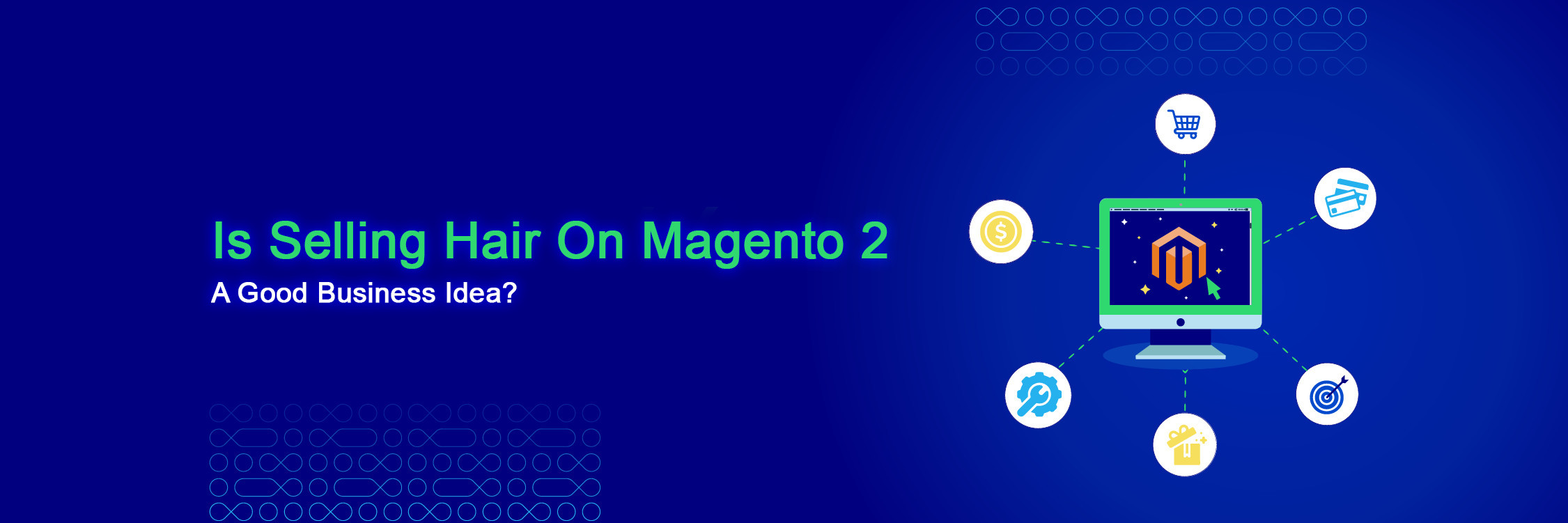What Is an SSL Certificate (Secure Sockets Layer)? Definition, Importance & More!
With a big catalog of 234+ extensions for your online store
When browsing the Internet, have you ever wondered why some URLs start with http:// while others start with https://?
Maybe you noticed the extra “s” when browsing some websites that require giving over personal information, such as your credit card number.
So, where does the extra “s” come from? And what does it really mean?
Simply put, the extra “s” stands for Security, meaning that your connection to that website is secure and encrypted, and any data you enter is safely shared with that website. The technology powering that little “s” is named SSL (Secure Sockets Layer).
As an Internet user, you always want to see https:// while visiting any site you trust with your essential information. As a marketer, you will want to make sure you have an SSL certificate for your audience.
Find out what SSL certificates are, why they are important, and how you can obtain them with our guide right below.
Let’s get started!
Table of contents
- What is an SSL (Secure Sockets Layer) certificate?
- Types of SSL certificates
- Importance of SSL certificates
- How can you know if your website has SSL?
- How can you get an SSL certificate for your website?
- Are SSL and TLS the same thing?
- The bottom line
What is an SSL (Secure Sockets Layer) certificate?
When you land on an insecure website that requires you to fill in a form and submit, the information you enter can be intercepted by a hacker. This information could be anything from your email to details on a bank transaction.
But how do attacks often happen?
Here is one of the most common ways: A hacker places an undetected program on the server hosting a website, which waits in the background until a visitor starts typing personal information. Then, it’ll activate to start capturing the information and send it back to the hacker.
However, when you visit a website encrypted with an SSL certificate, your browser will establish a connection with the webserver, then bind your browser and the server. This binding connection ensures that no one besides you and the website can see or access what you enter.

In technology terms, an SSL certificate is a protocol for servers and web browsers, ensuring that data passed between the two are private. It’s done using an encrypted link that connects the server and browser.
SSL was first developed by Netscape in 1995 for the purpose of guaranteeing privacy, authentication, and data integrity in Internet communications.
Websites that request personal information (e.g., email address, payment information, etc.) from a user, should have SSL certificates on their website. Having one means that the information you’re collecting is private. It also guarantees that when your customers see the padlock and https://, their privacy is safe.
Related topics:
Types of SSL certificates
There are several types of SSL certificates. Each certificate can apply to a single website or several websites, depending on the type:
-
Single-domain. This type applies to only one domain (a “domain” is the name of a website, like www.mageplaza.com).
-
Wildcard. Like a single-domain SSL certificate, a wildcard one applies to only one domain. Nevertheless, it also includes subdomains of that domain. For example, a wildcard SSL certificate would cover www.mageplaza.com, www.mageplaza.com/blog/, and www.mageplaza.com/magento-2-extensions/, while a single domain certificate could only cover the first.
-
Multi-domain. As its name indicates, multi-domain SSL certificates can actually apply to multiple unrelated domains.
SSL certificates can also come with different validation levels. You can imagine a validation level like a background check. The level changes depending on the thoroughness of the check.
-
Domain validation. This is the least-stringent and the cheapest level of validation. All you have to do is prove you control the domain.
-
Organization validation. This is a more hands-on process. The Certificate Authorities (CA) directly contacts the person or business requesting the certificate. These certificates are more reliable for users.
-
Extended validation. This type requires a full background check of an organization before the SSL certificate can be issued.
Importance of SSL certificates
Originally, data on the Internet was transmitted in plain text that anyone could read if they intercepted the message. For instance, if a shopper visited a shopping website, placed an order, then entered their credit card number, that information would travel across the Internet concealed.
SSL certificates were created to solve this problem and protect user privacy. By encrypting data between a user and a web server, SSL certificates ensure that anyone who intercepts the data can only see a scrambled mess of characters. The customer’s credit card number is now secure, only visible to the shopping website where they entered it.
In short, there are four main benefits of using an SSL certificate:
-
Authentication. Ensures the server you are connected to is actually the correct server
-
Encryption. Protects data transmissions (e.g., server to server, browser to server, app to server, etc.)
-
Data integrity. Ensures that the data requested or submitted is what is actually delivered. Your data won’t be modified in transit between your client and the servers.
-
SEO ranking. Since Google has announced SSL certificates as a ranking factor, having one can help your site appear higher in search than those that do not.
How can you know if your website has SSL?
When you visit a website with an SSL certificate, a few distinct differences are displayed within the browser.
The URL says “https://,” not “http://”
Keep in mind that an SSL-encrypted website always has the extra “s”. As we mentioned above, it stands for “secure.” It should look something like our screenshot below.

You can see a padlock icon in the URL bar
The padlock icon can show up on the left- or right-hand side of the URL bar, depending on your own browser. For instance, on Safari and Chrome, it will be on the left.

You can click on the padlock icon to read more information about the website and the company that provided the certificate.
The certificate is valid
Even if a site has the https:// and a padlock icon, the certificate could still be expired, which means your connection wouldn’t be secure. In most cases, the previous two points can prove that the site is secure. However, if you encounter a site asking for a lot of personal information, it may be worth double-checking to ensure that the certificate is valid.

To find out whether the SSL certificate is valid in Chrome, simply hit Ctrl + Shift + C, click the “»” icon, and choose “Security.” Then, you can see more information about the SSL certificate.
How can you get an SSL certificate for your website?
When you are looking to get an SSL certificate for eCommerce website, it’s essential to get the right certificate from the right provider, or CA (the organization that issues the certificate and associated keys). A faulty or improperly installed SSL certificate is no better than not having one at all.
Fortunately, it’s not that difficult to get an SSL certificate. Usually, the process runs as below:
- #1. Choose a Certificate Authority
- #2. Buy and verify your SSL certificate
- #3. Download your SSL certificate files
- #4. Install your certificate
- #5. Validate it and confirm that it is working
You can get an SSL certificate from:
Before choosing an SSL certificate, you should determine what certificate type you need. Let’s say if you want to host content on multiple platforms (on separate domains/ subdomains), you may need different SSL certificates.
Frequently, a standard SSL certificate will cover your content. However, for companies in a regulated industry - like finance or insurance - it may be worth talking with your IT team to make sure that you meet the specific requirements set within your industry.
The cost of an SSL certificate varies; you can even get a free certificate or pay per month to obtain a custom one. The familiar adage, “You get what you pay for,” definitely applies here. Your choice depends on the type of website and your company. A large financial institution may pay thousands of dollars per year for their SSL certificates, but a blog or online portfolio may not require the same kind of security, so a less expensive certificate will probably suffice.
Furthermore, you should consider the validity period of an SSL certificate. Most standard SSL certificates are available for one or two years by default, but if you are looking for longer-term options, you can choose more advanced certificates with longer-term periods.
Are SSL and TLS the same thing?
SSL is considered the direct predecessor of another protocol called Transport Layer Security (TLS).
In 1999, the IETF (Internet Engineering Task Force) proposed an update to SSL. As this update was being developed by the IETF and Netscape was not involved anymore, the name was then changed to TLS.
Actually, the differences between the final version of SSL and the first version of TLS are not drastic; the name change was applied to signify the change in ownership.
Since they are closely related, the two terms are often used interchangeably and confused. Some people use the term “SSL/TLS encryption” because SSL still has so much name recognition.
Learn more:
- How to enable SSL Certificate in Magento 2
- How to check url is secured https, ssl in Magento 2
- Guide For SSL Certificate Problem: Unable To Get Local Issuer Certificate
The bottom line
The next time you access a website, you can check its encryption status. By doing so, you’re able to see if your data is secure. Plus, if your business hasn’t had an SSL certificate yet, make it a part of your next goal set, so you can protect your customers’ data and privacy.
Plus, continue upgrading your security system with advanced options. You can keep the bad guys out with Magento 2 Security Extension, which offers awesome security features with reasonable pricing plans. Try it now!
& Maintenance Services
Make sure your M2 store is not only in good shape but also thriving with a professional team yet at an affordable price.
Get StartedNew Posts

May 2023
Stay in the know
Get special offers on the latest news from Mageplaza.
Earn $10 in reward now!







